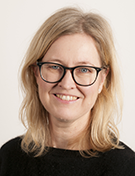Trude Lappegard, University of Oslo
| When |
Sep 18, 2017
from 12:00 PM to 01:00 PM |
|---|---|
| Where | 1101 Morrill Hall |
| Contact Name | Jennifer Doiron |
| Contact Phone | 301-405-6403 |
| Add event to calendar |
|
About the Presentation
Dr. Lappegard will be presenting a study examining the relationship between father involvement and women’s individual childbearing, focusing on the mechanism steaming from father involvement both at the individual level and at the societal level. Father involvement and gender equality have become important issues in the discussion about how to increase fertility. Concern over low fertility in modern societies has prompted efforts to search for policy responses and the majority of European countries have considered policy interventions to raise fertility levels. A positive relationship between father involvement and fertility may play out at the societal level where high level of gender equality in a country or region may be associated with high fertility, and it may play out at the individual level where more gender equal families have more children. Data for this study is from administrative registers covering the whole population for the period 1994-2013. The study uses proportional hazard model with separate functions for first, second and third birth. The results from the analysis is used to simulate different scenarios for the relationship between father involvement at the societal level and fertility. As the fertility in Norway has dropped substantially over the last seven years, these results are discussed in relation to the resent development.
About the Speaker

Trude Lappegård is and Associate Professor in Sociology at the University of Oslo, Norway. Prior to teaching at the University of Oslo she was head of research for the unit of demographic research in the Research Department, Statistics Norway where she worked for 18 years. As a family sociologist her work includes family formation, fertility, gender equality and family policy. She has done many in-depth studies of the Norwegian context but also many cross national analysis focusing on industrialized countries.
